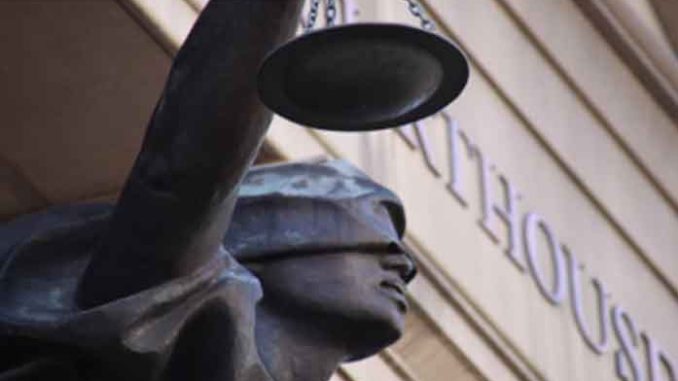
WASHINGTON – A federal appeals court Wednesday upheld a Tucson man’s conviction and sentence on child pornography charges, rejecting his argument that procedural problems at trial kept him from presenting his defense.
Bryan Rusnak claimed that child pornography found on his home computer in 2014 had been downloaded by a friend without his knowledge.
But a three-judge panel of the 9th Circuit U.S. Court of Appeals said prosecutors presented “a strong case that Rusnak, rather than a third party, was responsible for accessing, possessing and distributing” the pornography.
The court also said that whatever errors were made benefited Rusnak. It upheld his conviction and seven-year prison sentence and affirmed part of his subsequent supervised release that will require him to submit to searches by authorities for life.
Calls seeking comment from attorneys in the case were not immediately returned Wednesday.
The case began in May 2014 when an FBI agent received eight child pornography images from “an unknown individual using a peer-to-peer file sharing website.” But the agency was able to trace the images to an Internet address linked to Rusnak’s home.
In October, FBI Agent Eric Campbell obtained a warrant to search Rusnak’s home, where they seized two laptops and a desktop computer, among other items.
“A forensic search of the computers found child pornography and search terms associated with child pornography” as well as software designed to wipe information from computers and another program that blocks unwanted access to the computer, the court ruling said.
At trial, Campbell testified that efforts had been made to wipe Rusnak’s computers clean and that sometimes there are problems recovering data but that investigators “get lucky sometimes with the forensic review,” and this was one of those times.
Rusnak acknowledged that he had downloaded the computer cleaning and blocking software, but that a friend “or one of the other people who frequently visited his home” had downloaded the illegal items.
But the appeals court was not swayed.
“During the investigation, Rusnak repeatedly asserted he did not know how the child pornography ended up on his computer,” said the opinion by Circuit Judge Ryan D. Nelson. “Only when he got to trial did Rusnak assert that someone else was responsible for the child pornography.”
Rusnak also challenged the fact that he was not able to fully question his wife on the stand, who he said would have corroborated his story.
But the court said he failed to identify her as a potential witness to prosecutors. The fact that he was still allowed limited questioning of her, in response to the government’s questions, was “particularly generous to Rusnak” who “benefited more from the district court’s” decision to let her take the stand.
Finally, the appeals court rejected Rusnak’s claim that the state’s closing arguments – when prosecutors held up a photo showing a baby’s crib next to his home computer – amounted to prosecutorial misconduct.
“What the defendant wants you to believe is that his friend that he’s still friends with went into this room, looked at child pornography, did whatever it is he was going to do while he was looking at the child pornography right here next to this crib,” the prosecution said.
Rusnak said the photo was taken in a house he and his wife moved into after the last date on which any pornography was accessed on his computer.
The appeals court said the government’s argument, “while toeing the line, was ultimately … a ‘fair comment on the state of the evidence.’” And the instructed jurors, verbally and in writing, that the “lawyers’ statements aren’t evidence.”
The court also rejected Rusnak’s claim that the judge failed to say authorities need “reasonable suspicion” to demand a “search at any time, with or without a warrant.” While the judge did not say it, the reasonable suspicion requirement is included in the written order, the court noted.
Ryan wrote that Rusnak raised six claims of error “relating to his conviction. Each is unavailing.”
“The Government presented a strong case showing that Rusnak, rather than a third party, was responsible for accessing, possessing, and distributing the child pornography,” Nelson wrote.
